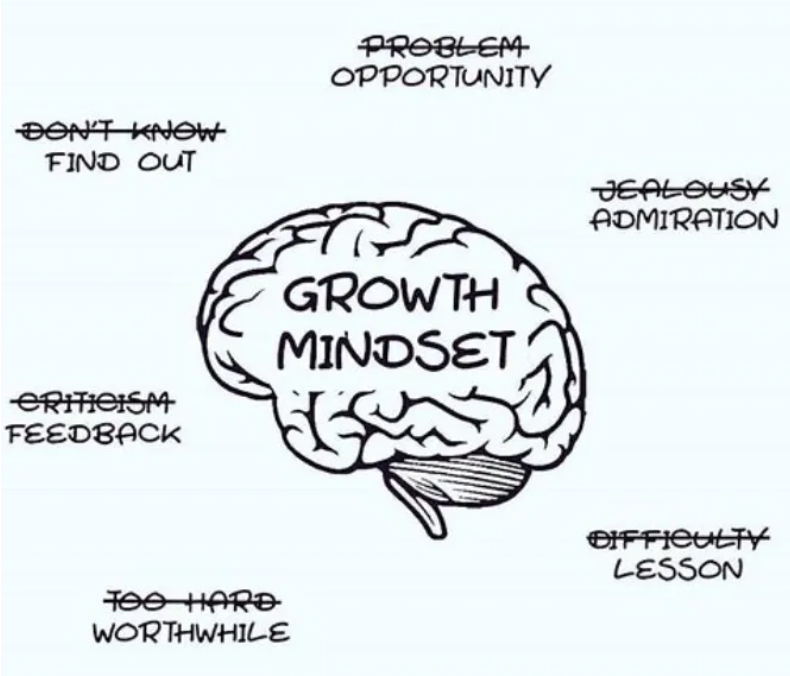Who is Carol Dweck
Carol Dweck is one of the most well-known people to have made contributions to the field of psychology.

Selfpause Affirmation App
Download the app to get 1,000’s of affirmation meditations and everything you need to write, record and listen to your own.
Among all the famous people who have contributed to the field of psychology, Carol Dweck is one of the most important figures. She has been able to develop an understanding of how people achieve and succeed. Her work has helped thousands of people around the world. She has also been invited to appear on television and in newspapers.
Career

Throughout her academic career, Carol Dweck has become an expert on mindsets and motivation. She has published numerous books and peer-reviewed journal articles on this topic. Her research has shown that mindsets can have a powerful impact on the trajectories of students’ academic performance. She has lectured on this subject to groups across the world.
She received her bachelor’s degree in psychology from Barnard College and her doctorate from Yale University. She has also held positions at Columbia and Harvard universities. She is now a professor at Stanford University.
She has written several books and been awarded with many awards. In 2013, she was given the James McKeen Cattell Life Achievement Award from the Association for Psychological Science. She has been a member of the National Academy of Sciences and the American Psychological Association. She has also been elected to the American Academy of Arts and Sciences.
She is currently a Professor of Psychology at Stanford University. She is also the Lewis and Virginia Eaton Professor of Psychology.
She has studied a variety of subjects and has written over 100 publications. Her primary areas of interest include developmental psychology and personality. She has received numerous awards for her research. She has also received the Distinguished Scientific Contribution award from the American Psychological Association.
Her work has been featured in publications such as The New York Times, The Washington Post, and Time. She has appeared on television shows such as Good Morning America, Today, and Morning Edition. She has also been named as a contributor to The New Yorker. She is married to David Goldman. They have two children from a previous relationship.
Carol Dweck is a pioneer in the study of motivation and mindsets. She has developed several theories that have had an impact on the education and business worlds.
Education

Psychologist Carol Dweck is one of the best known researchers in the field of motivation. Her work combines principles from personality, social and developmental psychology, and has been recognized for her contributions to cognitive and social psychology. She is currently a professor at Stanford University. She has been elected to the American Academy of Arts and Sciences, and has won numerous awards for her work.
Carol Dweck studied at Barnard College in New York City and Yale University. She received a PhD in psychology from Yale in 1972. She has taught at Harvard, Columbia, and University of Illinois. She has authored more than 100 publications. She has been awarded more than 10 lifetime achievement awards for her research.
Dweck’s primary area of research is on motivation. Her studies have shown that mindsets are a key factor in success. In addition, she has developed programs to encourage a growth mindset in children. She has also written extensively about this subject for the public.
Carol Dweck’s theory has serious implications for education. Teachers and parents may have to alter their beliefs about intelligence, if they want to foster positive student development.
Dweck’s theories are being challenged, however. Some critics believe her views are overly optimistic. They note that she may have overestimated the impact of her interventions, especially given the focus on standardized tests scores. Others argue that her emphasis on hard work and trying harder can actually erode students’ belief in their ability to learn.
Dweck’s work is a challenge to the widely-held belief that intelligence is largely a matter of natural talent. Her research has found that attribution, or the way that we perceive ourselves and others, plays a key role in how we perform and respond.
Personal life

Psychologist Carol Dweck is a pioneer in studying human motivation. Her studies focus on why people succeed and how they get there. She has studied why some students give up in the face of failure and what we can do to encourage success in children. She has published over 100 papers and received numerous awards.
Carol Dweck has also written about the importance of mindsets, which are beliefs that influence an individual’s motivation. Dweck’s research has shown that mindsets can have a significant impact on academic trajectories. Essentially, individuals may not even know they have certain mindsets. This has important implications in education, business, and sports.
Carol Dweck’s theory on mindsets has its fair share of criticisms. For instance, other researchers have expressed concern over the graded aspect of the theory. They are concerned that a student’s mindset might become passive when they are given random punishments. However, Dweck has been able to replicate her findings several times.
Dweck has used principles from social psychology and developmental psychology to study self-beliefs and how they affect behavior and achievement. In particular, she has examined the relationship between fixed and growth mindsets. She has discovered that students who are taught about the benefits of a growth mindset are more motivated to work harder. She has advised parents to praise their children for doing their best.
Dweck has been honored with numerous awards and has been elected to the American Academy of Arts and Sciences. She has been awarded the Distinguished Scientific Contribution Award from the American Psychological Association and the James McKeen Cattell Life Achievement Award from the Association for Psychological Science. She has been one of the inaugural Laureates of the Yidan Prize for Education Research.
Theory of achievement and success

Psychologist Carol Dweck’s theory of achievement and success focuses on the relationship between a person’s mindset and their motivation. Her research has found that a person’s beliefs about themselves affect their attitude towards learning and self-regulation. She has also written about the role that performance cues play in influencing students’ beliefs.
According to Dweck, an individual’s mindset can influence how they act in any situation. For example, she has found that students with a growth mindset are more likely to persist when struggling. In contrast, students with a fixed mindset are less likely to work hard or persist when they are faced with difficult tasks.
Dweck’s theory of achievement and motivation has many implications for educational settings. For example, teachers can use her research to help underperforming students improve their performance. Moreover, her theories are being used by sports coaches to enhance the performance of athletes.
Dweck’s theory has been widely used in schools. For instance, she developed programs to encourage children to develop a growth mindset. She has studied students’ attitudes toward failure and how students respond to feedback. Her research has been cited by teachers and parents to motivate students. In addition, her work has been used by human-resources managers to help clients.
Dweck’s work crosses several fields of psychology, including developmental, social, and cognitive psychology. She has written a number of books, including The Handbook of Competence and Motivation and Self-Theories in Personality and Development. She has also taught at Harvard, Columbia, and Yale.
Dweck has also been awarded many honors for her contributions to the field of psychology. Her book, Mindset: The New Psychology of Success, was named Book of the Year by the World Education Federation.
Public appearances

Known as one of the world’s top motivational experts, Carol Dweck’s public appearances have made her a household name. She has penned several bestselling books, and has given lectures to audiences around the globe. She is a prominent member of the American Academy of Arts and Sciences. She has been named to the Klingenstein Award for Leadership in Education, and is a founding member of the American Psychological Association’s Educational Psychology Division. She has appeared on Good Morning America and 20/20, and has been interviewed by the Wall Street Journal and Newsweek.
As a psychologist, Carol Dweck has studied what makes people successful, and has devoted much of her career to the study of motivation and achievement. She has authored numerous bestselling books, including The Growth Mindset, and has been the recipient of several awards, including the Ann L. Brown Award for Excellence in Developmental Research and the E. L. Thorndike Career Achievement Award in Educational Psychology from the American Psychological Association.
Carol Dweck’s public appearances are available for significant private and public events, as well as virtual appearances. Her availability depends on the event requirements, and a fee can be negotiated with Jay Siegan Presents.
While most of Carol Dweck’s presentations are in the academic field, she is also a popular speaker at corporate events, universities, and other organizations. She has been the subject of countless media articles, and has been featured in numerous media outlets, from the Wall Street Journal to the New Yorker. She has also been cited by several famous names, including Malcolm Gladwell, who recently spoke at a Journal of Management Inquiry symposium.
While Carol Dweck’s public appearances may be more about motivation and performance, her newest book, Mindset: The New Psychology of Success, is a work of sheer innovation. Using the latest research and statistics, Dweck offers readers actionable steps that they can take to boost their performance and improve their overall well-being.
Our Top FAQ's
Carol Dweck is a Stanford University psychologist and leading researcher in the field of motivation. She is known for her work on the concept of “mindset,” which refers to an individual’s beliefs about their own abilities and potential for growth and development.
Dweck’s concept of “growth mindset” refers to the belief that an individual’s abilities and intelligence can be developed through effort, learning, and persistence. This is in contrast to a “fixed mindset,” which is the belief that an individual’s abilities and intelligence are fixed and cannot be changed. Dweck developed this concept through her research on the role of beliefs and attitudes in achievement and success.
Dweck’s work on growth mindset has had a significant influence on education and parenting practices. Many educators and parents have embraced the idea of promoting a growth mindset in children, as it has been shown to lead to increased motivation, resilience, and achievement. Dweck’s work has also been applied in the business world, where it has been used to help organizations create a culture of continuous learning and development.
Adopting a growth mindset can contribute to personal and professional success in a number of ways. It can help individuals to be more open to learning new things, to persevere in the face of challenges, and to be more resilient when facing setbacks. It can also help individuals to be more adaptable and flexible in their thinking, which can be beneficial in a rapidly changing world.
There are several strategies that individuals can use to develop a growth mindset and apply it in their daily lives. These include setting specific, challenging goals and working towards them with effort and persistence; seeking out new learning opportunities and challenges; and adopting a positive attitude towards setbacks and failures, viewing them as opportunities for learning and growth. It can also be helpful to surround oneself with others who have a growth mindset, as their attitudes and beliefs can be contagious.
